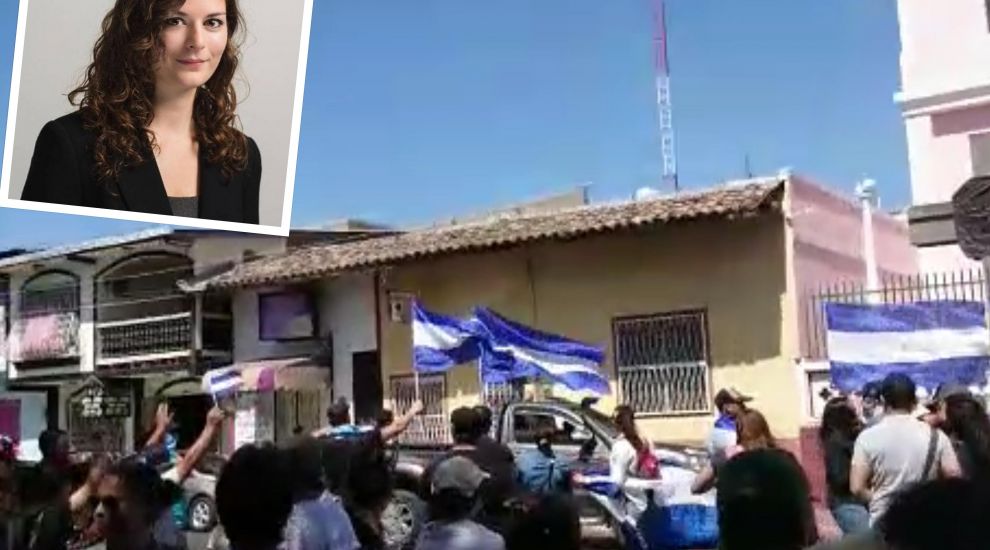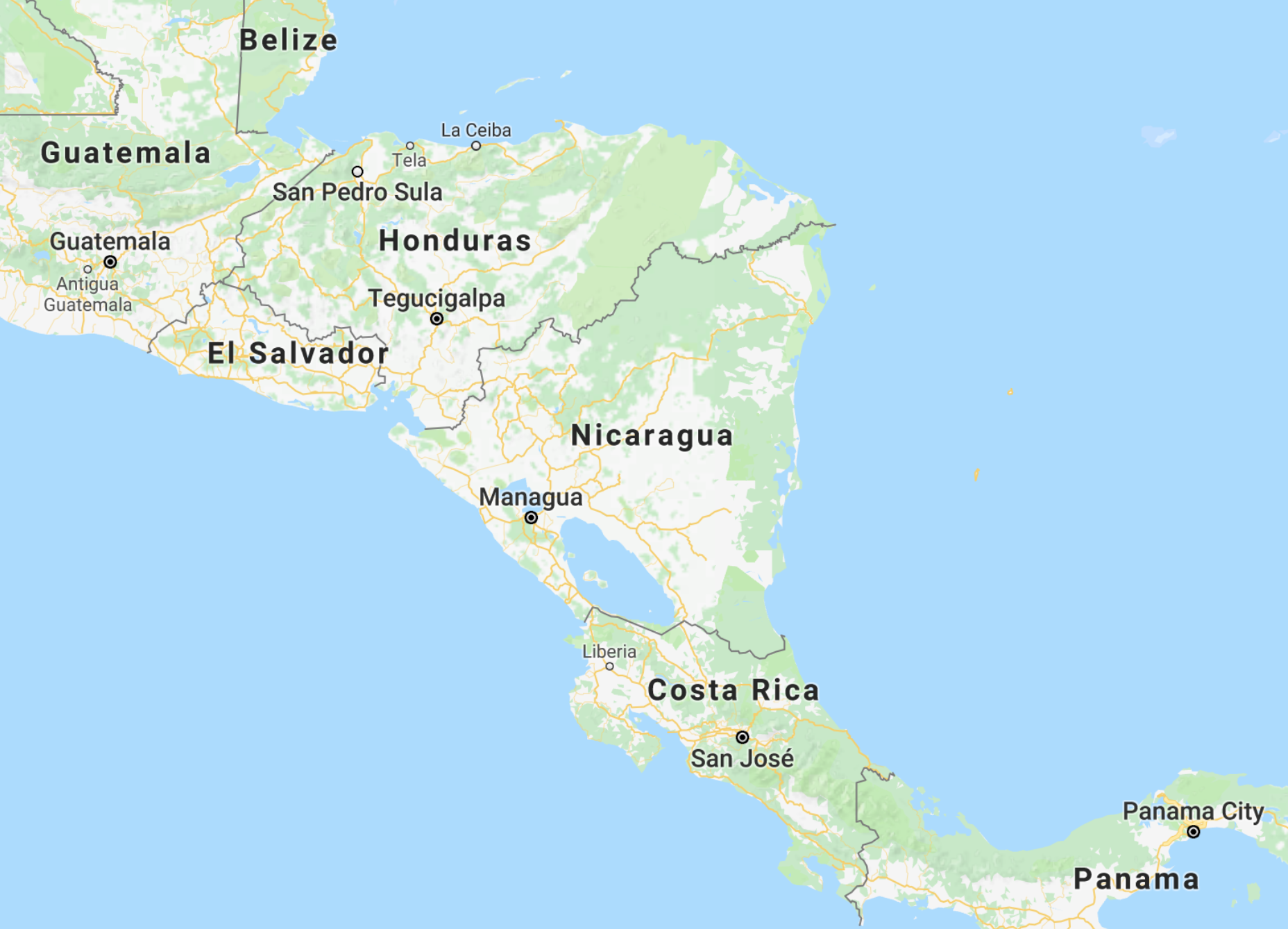

With a journalist being killed while reporting live on Facebook, and up to 25 other civilians dead, anti-government protests in Nicaragua have interrupted the travels of one 25-year-old girl from Jersey this weekend.
Former JCG student Becki Curtis left her job at a local law firm to travel to Central America in October 2017 - for the last three months she has been volunteering at the NGO La Esperanza Granada.
But this weekend the anti-government protests, apparently about pension changes approved by the government of President Daniel Ortega last week, turned violent, with one journalist, Ángel Gahona, shot dead while doing a live broadcast in the Caribbean coast town of Bluefields.
Becki sent this report back home to Express:
"On 12 April 2018, a student protest took place against the government’s decision to refuse the help of Costa Rican firefighters whilst the Indio-Maíz Reserve continues to burn.
Then, on 18 April 2018, a student protest in Managua about 5% tax on pension benefits was met with police brutality.
Now, 20 April 2018, protests are erupting across the nation as people, predominantly students and workers, gather to oppose the brutality and sing the Nicaraguan anthem. Significantly, elements of the media have already started to identify the protesters as 'Sandinistas'. This not-so-subtle statement carries with it the premise that the Sandinistan Revolution of the 1970s is dead, having morphed into another dictatorship supported by a new era of oligarchs, whilst those protesting are the true Sandinistas of Nicaragua.

Pictured: The Central America state of Nicaragua, location for much of this weekend's violence.
Voices can be heard from Managua to León, Masaya to Matagalpa, despite the use of gas and, in certain instances, tanks. Protests in the major cities have become violent, with molotov cocktails thrown and objects set on fire by pockets of individuals; retaliation for the violence and death that is taking place at the hands of the police.
In Masaya, a lawyer who spent the day distributing water to protesters, asserts 'Nos tienen miedo porque NO TENEMOS MIEDO' (they are afraid because we are not afraid). On the streets, criticism of the government is becoming increasingly prevalent, and musings as to whether Nicaragua will become like Venezuela can be overheard.
However, for now, it appears that the protests have not ignited the whole population. Indeed, on 20 April, in Parque Ruben Dario, Matagalpa, a group of predominantly young individuals organised themselves in protest at one side of the small Parque, whilst a slightly less vocal Government-organised counter-protest was established on the other side of the Parque. In between, numerous people sit wherever it is possible to catch a little shade, seemingly indifferent to the two opposing sides.
Driving Matagalpa to Managua two men at the roadside seemingly salute the bus with a rifle held over their head, in their right-hand. As we reach the outskirts of Tipitapa, we see a graveyard of buses. We exit the bus to attempt to change for Masaya but none pass by.
Video: Protests have been erupting all over the country. (Becki Curtis)
Later, after we eventually agree to a taxi, the taxi driver shows us the empty bus station, rubbish and a few stray people scattered around as remnants of the protest which took place earlier in the day. The driver then shows us pictures of a young man lying dead on the ground and indicates that he had died, today, at the hands of the police.
Arriving in Granada, all roads close to the Central Parque are closed. As you edge your way around the outskirts of the square, groups of people push forward and retreat, push forward and retreat. Shots and gas canisters are fired every minute or so and the sky lights up. All the streets are abandoned and dark, save for a few spectators.
By 21:00, the only people who remain on the street are the handful looking to make their presence known. Without organisation, they are scattered through the streets, occasionally throwing rocks or cocktails before retreating from the police. By this point, it feels like the protest is over, as the individuals left appear to be more immersed in a game of anarchy, rather than engaging in a protest.
Tomorrow is another day."
Comments
Comments on this story express the views of the commentator only, not Bailiwick Publishing. We are unable to guarantee the accuracy of any of those comments.